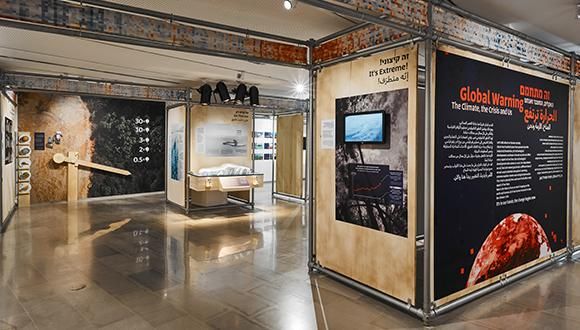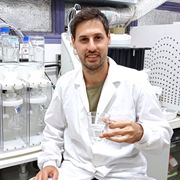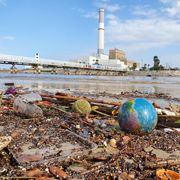This Exhibition Will Make You Sweat
New exhibition on climate crisis gives us tools to save the planet
Recent news has covered extreme events all over the world: floods in Germany, Belgium and central China, huge wildfires raging in California, consuming thousands of acres of land and extreme temperatures in Canada, Iraq and the United States. Scientists no longer doubt that all this and more is taking place due to global warming, and what is commonly referred to as the “climate crisis”
Seeking to educate the Israeli public on the science behind the concepts that we keep hearing, such as the greenhouse effect, global warming and carbon footprint, the Steinhardt Museum of Natural History has set up the exhibition “Global Warning: The Climate, the Crisis and Us”, which encourages the public to learn more about the subject and become ambassadors who will lead the long-awaited change. We checked, and can share with you that it is impossible to remain indifferent after visiting the exhibition.
How Many Trees Are Working Just for You?
The exhibition, which the museum has been working on for over a year, guides the visitors to the sea, land, glaciers and forests, in the past, present and future. It presents current scientific findings and basic concepts in the field in simple terms and through interactive means, such as videos, thermal cameras that expose thermal gases that surround us, and more.
It uncovers the dire consequences of the climate crisis here in Israel and worldwide, and illustrates the impact of our daily choices as individuals. Everything is not lost; the exhibition illuminates how we can counteract the changes that are causing the crisis and reduce the harm caused to us and the environment.
The various stations of the exhibition show how popular tourist spots may look like in 20 years from now, what the atmospheric composition was thousands of years ago, and what it may be in a few decades from now. The connection between allergies and global warming is explained, as well as what it will be like when sea level reaches our shoulders. You can even check what your personal carbon footprint is, by the help of an online calculator which was developed especially for the exhibition and is the first of its kind in Israel.

What do greenhouse gases look like? Judi Lax explains big concepts in simple language.
Fostering Change Agents
The new exhibition does not, however, intend to scare us into passivity: “We wish to increase the awareness surrounding our daily choices, such as what to eat, how to travel, what to buy and what not to buy. These things have implications and a price beyond the cost of the purchase itself. Oftentimes, people hear about the climate crisis and say, “Ok, but how does this relate to me?” We wish to impart that, although a lot [of damage] has accumulated, it is not all lost. We also have a hand in the matter, and can undo some of the damage,” explains Hadas Zemer Ben-Ari, the exhibition’s curator and designer. “Along with the experience of visiting the exhibition, we strive to make our visitors agents of change, who will spread the message outside the walls of the museum and inspire many others to work for the change that we so desperately need,” says Prof. Tamar Dayan, Museum Chair at the Steinhardt Museum of Nature.
The Museum joins some of the worlds’ largest museums in the common mission to carry out their social role in educating the wider audience on the topic of the climate crisis and the discussion of the biodiversity crisis and its impacts. Museum Director Alon Sapan explains that museums are capable of illustrating and simulating a complex reality and the processes that led to it, along with predictions for the future, while ensuring the visitors’ experience and encouraging their curiosity. “I hope that the exhibition will inspire questions, and also enlighten individuals on how they contribute to positive change by adjusting their personal habits,” concludes Sapan.

An invitation to change a habit (or three!) at the “Global Warning” exhibition.






